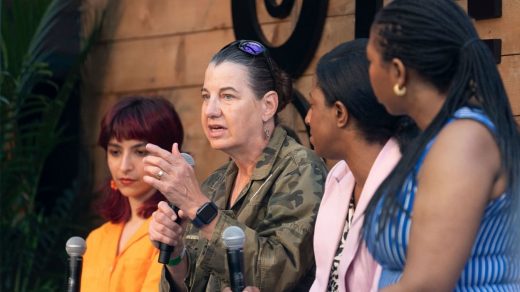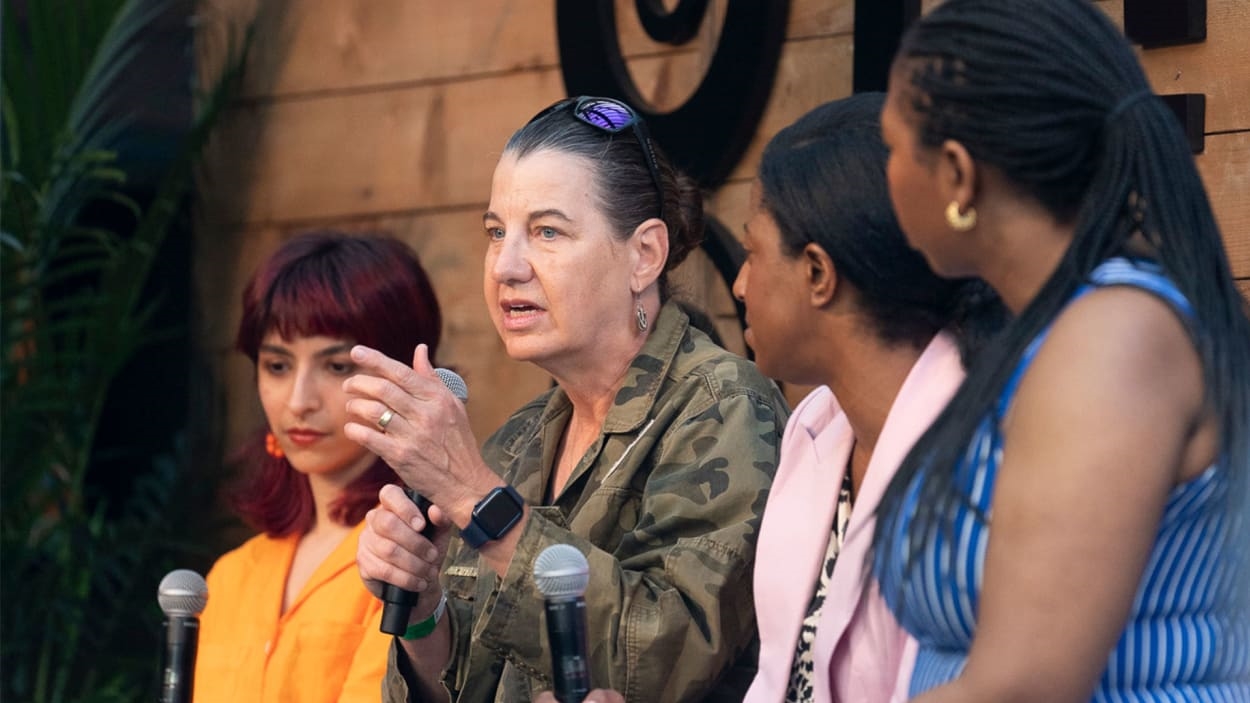Planned Parenthood’s Dawn Laguens says companies need to do more in the fight for abortion rights
Since the Supreme Court overturned Roe v. Wade last June, abortion activists and providers have been scrambling to help vulnerable people access care, particularly in states like Texas that have implemented sweeping abortion bans with virtually no exceptions. As medication abortions have grown more common in the aftermath of the SCOTUS decision, anti-abortion activists are taking aim at that, too: A lawsuit filed in Amarillo, Texas, seeks to undermine the FDA’s approval of mifepristone, the first of the two-pill regimen that comprises a medication abortion.
Amid these ongoing attacks on abortion rights, advocates like Dawn Laguens, the chief global strategy and innovation officer at Planned Parenthood, are urging the business world to do its part. “We need corporations and businesses to stand up for their employees,” Laguens said during a panel at the Fast Company Grill at SXSW, where she was joined by Jess Pires-Jancose of the advocacy group Avow Texas; Susan Allen, cofounder of Here We Flow; and Amanda E/J Morrison, cofounder and president of Julie Products. “We need them to stand up for their customers.”
Since last summer, tech companies and other large employers have introduced benefits for people who need to travel out of state for abortion care; many of them have also signed onto the Don’t Ban Equality pledge, a coalition of almost 700 businesses that support abortion rights. But Laguens pointed out that companies also should be thoughtful about where they do business, and what they are asking of employees who are expected to travel—or even relocate—to states without abortion protections. She cited a pregnant Planned Parenthood employee who was in Texas for work and started bleeding; she was advised by her doctor to leave the state immediately, to ensure she received the proper care.
“Companies need to communicate clearly what you can expect, especially for new employees,” Laguens said. “We also need companies to consider: Are you expanding in a state or sending your employees to a state to work and live where they’re in danger?”
Of course, even a federal right to abortion didn’t guarantee access for all Americans; in many states, stringent abortion laws made it difficult for clinics to stay afloat and for people to obtain the care they needed. So in the post-Roe era, community-based support is even more important.
“I think it does create opportunities for us to envision something new,” said Pires-Jancose, who oversees abortion advocacy efforts in Texas as Avow’s Dallas outreach and organizing manager. “At the end of the day, if our government is not supporting us, we need to have each other’s backs—so that means investing in mutual aid.”
That might include going to rallies or volunteering, but Pires-Jancose points out that it can be as simple as offering support to a friend who needs emergency contraception.
With so much at stake, the panelists also emphasized the importance of storytelling to mitigate the stigma associated with abortion care and underscore the importance of preserving abortion access. “One thing that we’ve realized is people don’t think in terms of facts; they think in terms of their values,” Pires-Jancose says. “There’s just a lot of power in abortion storytelling because it really does move people from judgment to a place of empathy, which ultimately is where we want them to be when they’re thinking about something like abortion.”
(19)



